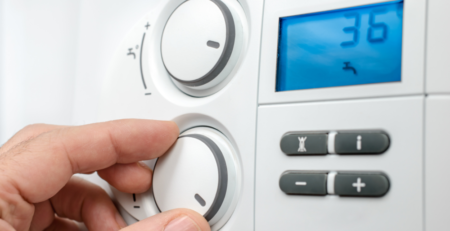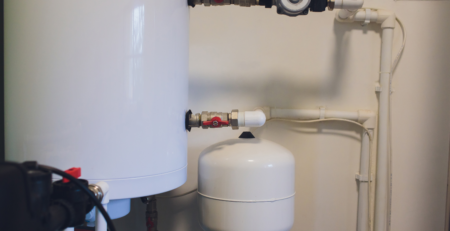Green Tech Gems: Environmentally Friendly Features of Electric Water Heaters
Environmentally Friendly Features of Electric Water Heaters In the quest for sustainability, homeowners are turning to environmentally friendly appliances, and electric water heaters have become green tech gems. These appliances are evolving with innovative features that not only provide hot water efficiently but also contribute to environmental conservation. In this guide, we explore the eco-friendly features of electric water heaters that make them a green choice for conscious consumers.
1. Energy-Efficiency and Standby Heat Loss Reduction
Modern electric water heaters incorporate advanced energy-efficient technologies to minimize standby heat loss. Standby heat loss occurs when heat escapes from the water heater’s tank, even when hot water is not in use. Electric water heaters use improved insulation materials and design configurations to significantly reduce heat loss, ensuring that energy is conserved and not wasted.
2. Smart Temperature Control Systems
Many electric water heaters come equipped with smart temperature control systems that allow users to set and optimize water temperatures based on their preferences and usage patterns. This feature not only enhances comfort but also helps to prevent overheating and unnecessary energy consumption. By having precise control over water temperatures, homeowners can use just the right amount of energy needed for their hot water needs.
3. High-Efficiency Heating Elements
The heating elements in electric water heaters play a crucial role in energy consumption. Green tech electric water heaters are equipped with high-efficiency heating elements that heat water quickly and effectively. These elements are designed to convert more energy into heat, reducing the overall energy consumption of the water heating process.
4. Integration with Renewable Energy Sources
To further enhance their environmental credentials, some electric water heaters are designed to integrate seamlessly with renewable energy sources. Homeowners can connect their electric water heaters to solar panels or other renewable energy systems, utilizing clean energy to heat water. This integration reduces dependence on conventional energy sources and lowers the carbon footprint associated with water heating.
5. Tankless Technology for On-Demand Heating
Tankless electric water heaters, also known as on-demand water heaters, operate without a storage tank. This design eliminates the standby heat loss associated with traditional tank water heaters. Tankless technology heats water on demand, providing hot water only when needed. This not only conserves energy but also ensures a constant supply of hot water without the need for continuous heating.
6. Digital and Programmable Controls
Digital and programmable controls in electric water heaters offer users the ability to schedule heating cycles and adjust settings according to their usage patterns. Programmable controls allow homeowners to optimize energy consumption by heating water only during peak usage times, such as mornings and evenings. This feature contributes to energy efficiency and reduces unnecessary energy consumption during periods of low demand.
7. Low-Flow Fixture Compatibility
Electric water heaters are designed to work efficiently with low-flow fixtures, such as faucets and showerheads. Low-flow fixtures reduce the flow rate of water, helping to conserve both water and energy. Electric water heaters, when paired with these fixtures, ensure that only the necessary amount of water is heated, contributing to overall energy savings and eco-friendly practices.
8. Energy Star Certification
Many electric water heaters come with Energy Star certification, indicating that they meet or exceed strict energy efficiency guidelines set by the U.S. Environmental Protection Agency (EPA). Energy Star-certified appliances are recognized for their eco-friendly features and can significantly reduce energy consumption, resulting in lower utility bills and a smaller environmental impact.
9. Minimal Maintenance and Longevity
Electric water heaters often require minimal maintenance, contributing to their overall eco-friendliness. With fewer maintenance needs, these appliances experience less wear and tear, resulting in extended lifespans. The longevity of electric water heaters means less frequent replacements, reducing the environmental impact associated with the manufacturing and disposal of appliances.
10. Consideration for End-of-Life Recycling
Manufacturers of electric water heaters increasingly consider the recyclability of their products at the end of their life cycle. Designing appliances with recyclable materials and components ensures that when the time comes for disposal, the environmental impact is minimized. Homeowners are encouraged to explore recycling options provided by manufacturers or local waste management facilities.
Conclusion
Electric water heaters have evolved into green tech gems, offering a range of eco-friendly features that align with sustainable living practices. From energy-efficient designs to smart controls and compatibility with renewable energy sources, these appliances contribute to both environmental conservation and reduced energy costs for homeowners. Embracing green technology in the form of electric water heaters is a step toward a more sustainable and eco-conscious home.
Get Access Now
Explore a selection of environmentally friendly electric water heaters and discover the green tech gems that suit your home’s needs. Visit for insights, comparisons, and recommendations on eco-friendly water heating solutions.




Leave a Reply